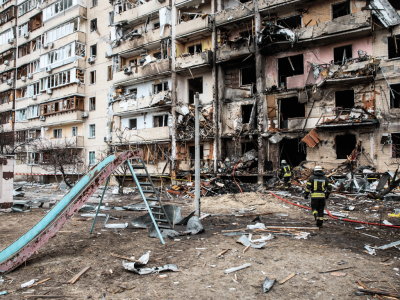
State broadcaster TVP S.A. has sought to appeal a judgment in which a court ordered it to apologise to Khedi Alieva, a refugee from Chechnya and social activist, for the use of her image in an anti-immigration and xenophobic piece. The Supreme Court rejected TVP's cassation appeal. TVP has not yet complied with the judgment.
UPDATE: TVP S.A. apologised to Khedi Alieva on 2 November.
At the request of the HFHR, Ms Alieva was represented pro bono by Hanna Marcinkiewicz-Grzesiak of SKP Ślusarek Kubiak Pieczyk sp.k.
Khedi Alieva has been active in the community for many years. The case originated in 2016 when the news channel TVP Info aired a feature before the evening news about the establishment of the Immigrant Council by the mayor of the city of Gdańsk. In the report, immigrants were portrayed in a bad light, as a threat to public safety and order. Scenes of a rioting crowd destroying their surroundings were shown. The programme also showed a photo of Khedi Alieva with Gdansk Mayor Paweł Adamowicz, taken during the reception of the nomination for the Immigrant Council. The photo was used by TVP Info without Ms Alieva's permission. After the footage was broadcast, Khedi Alieva and her relatives were personally attacked and exposed to derogatory comments on the streets of Gdansk.
On the advice of her pro bono lawyers from SKP Ślusarek Kubiak Pieczyk sp.k., Khedi Alieva decided to sue Telewizja Polska, claiming that the use of her image in a xenophobic and racist piece violated her honour, good reputation and image.
The Warsaw Regional Court initially dismissed the case in its entirety in June 2021, but the Warsaw Court of Appeal changed the unfavourable ruling.
The Warsaw Court of Appeal found that TVP S.A. had violated her good reputation and dignity by using Khedi Alieva's image in anti-immigrant content. The court stressed that the material aired was extremely biased, stoked fears and shaped negative stereotypes about migrants. The use of the image of Ms Alieva meant that it was presented as an example of a person who was carrying a threat. Therefore, the court ordered TVP S.A. to apologise to Khedi Alieva immediately before one of the next broadcasts of the TVP Info Evening News live on air and to publish the content of the apology on the station's website. TVP S.A. was also ordered to pay PLN 10,000 in damages to Ms Alieva and to transfer PLN 10,000 to a charity that supports migrants.
“The Supreme Court declined to consider TVP's cassation appeal and upheld the correctness of the Warsaw Court of Appeal's judgement.” The Supreme Court emphasised that the material in which the image of Khedi Alieva was used was xenophobic, racist and biassed, and edited in such a way as to create tension and an atmosphere of fear,” says advocate Hanna Marcinkiewicz-Grzesiak of SKP Ślusarek Kubiak Pieczyk.
“The Supreme Court also reminded that statements that promote or justify racial hatred, xenophobia, anti-Semitism or other forms of hatred are not covered by the right to freedom of expression. Although the ruling refers to a case that happened several years ago, it is also important in the context of the current situation and the construction of a narrative by those in power and some media about the dangers of migrants and refugees,” says HFHR lawyer Jarosław Jagura.


